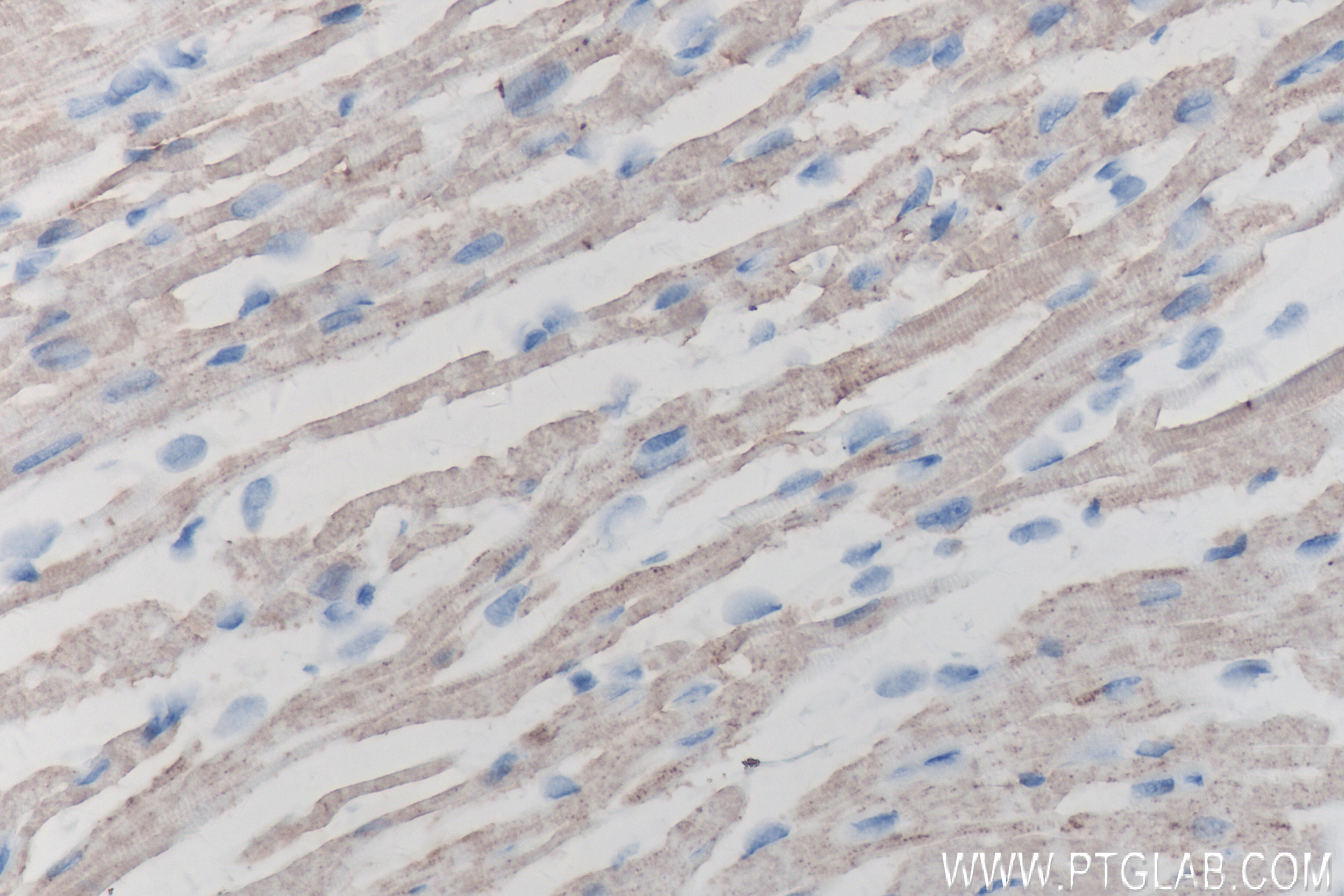Validation Data Gallery
Tested Applications
| Positive IHC detected in | mouse heart tissue Note: suggested antigen retrieval with TE buffer pH 9.0; (*) Alternatively, antigen retrieval may be performed with citrate buffer pH 6.0 |
Recommended dilution
| Application | Dilution |
|---|---|
| Immunohistochemistry (IHC) | IHC : 1:50-1:500 |
| It is recommended that this reagent should be titrated in each testing system to obtain optimal results. | |
| Sample-dependent, Check data in validation data gallery. | |
Product Information
83215-4-RR targets ZFYVE26 in IHC, ELISA applications and shows reactivity with human, mouse samples.
| Tested Reactivity | human, mouse |
| Host / Isotype | Rabbit / IgG |
| Class | Recombinant |
| Type | Antibody |
| Immunogen |
Peptide 相同性解析による交差性が予測される生物種 |
| Full Name | zinc finger, FYVE domain containing 26 |
| Calculated molecular weight | 285 kDa |
| GenBank accession number | NM_015346 |
| Gene Symbol | ZFYVE26 |
| Gene ID (NCBI) | 23503 |
| RRID | AB_3670900 |
| Conjugate | Unconjugated |
| Form | |
| Form | Liquid |
| Purification Method | Protein A purfication |
| UNIPROT ID | Q68DK2 |
| Storage Buffer | PBS with 0.02% sodium azide and 50% glycerol{{ptg:BufferTemp}}7.3 |
| Storage Conditions | Store at -20°C. Stable for one year after shipment. Aliquoting is unnecessary for -20oC storage. |
Background Information
ZFYVE26 is a large protein of 2539 amino acid residues and contains an FYVE domain that confers to the protein binding affinity to the membrane-associated phosphatidylinositol 3-phosphate (PtdIns3P). ZFYVE26 has a diffuse cytoplasmic distribution and partially colocalizes with early endosomes, the endoplasmic reticulum, microtubules, and vesicles. It also localizes to the midbody during cytokinesis (PMID: 24284334).
Protocols
| Product Specific Protocols | |
|---|---|
| IHC protocol for ZFYVE26 antibody 83215-4-RR | Download protocol |
| Standard Protocols | |
|---|---|
| Click here to view our Standard Protocols |

